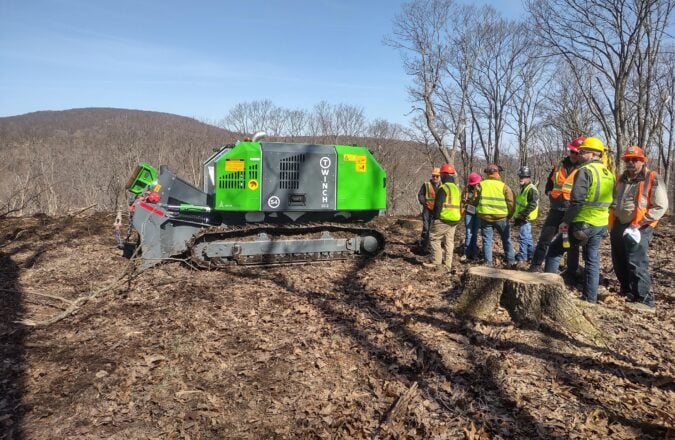An Afternoon with Peter Pinchot

I have been with the Forest Resources Association (FRA) since May, competitively placed through the Demmer Scholars Program. The Demmer Scholars Program places students from Michigan State and Mississippi State Universities at federal agencies or non-governmental organizations (NGOs) that focus on natural resource management. Students in this program not only participate in D.C. internships, but also take a course that evaluates how the federal government, as well as NGOs like FRA, affect the development and implementation of environmental policy. The program is led by the honorable Mark Rey who served as undersecretary for natural resources and the environment within the USDA under President George W. Bush.
The program incorporates guest lectures and field trips, grounding students in the policy-making arena. The 2017 cohort had the opportunity to visit Grey Towers National Historic Landmark in Milford, Pennsylvania. Grey Towers is the ancestral home of Gifford Pinchot, first chief of the U.S. Forest Service and governor of Pennsylvania. Grey Towers serves as a conservation education and leadership center, facilitated by the Forest Service with programs that interpret the lives of the Pinchot family and their legacy.
During our visit to Grey Towers, we heard from Dr. Peter Pinchot, Gifford Pinchot’s grandson. Pinchot had motivating advice: “sustainable forestry management begins with becoming a steward of the forest and having a plan.” A plan helps direct how to make the forest better not only for the timber it produces, but for the wildlife as well. However, he also added that wildlife can occasionally cause severe damage to forests. Pinchot shared that in many areas of Pennsylvania, white-tailed deer are overpopulated and feed on young trees. It is very common for these areas to encourage hunting and fencing off parts of forests to keep the deer from causing overgrazing of native vegetation.
Pinchot emphasized that in order to successfully manage forests, all aspects of the timber supply chain need to be accounted for. One cannot be a steward of the land without being a caretaker of the transport and manufacturing processes as well. It is vital that from the time a new tree is planted to customer purchase that all steps are being properly managed to yield a sustainable forestry industry.
Being a part of the FRA team means that I can truly relate to Pinchot’s advice. I have seen how hardworking and dedicated this organization and its members are toward making sure the timber supply chain is properly managed and our forests maintained. The Demmer Scholars Program ended in early August, although FRA asked me to stay and extended my internship. I am very proud to be apart of such a devoted organization of stewards and I look forward to continue prompting innovative forestry initiatives to address our member’s needs and concerns.


